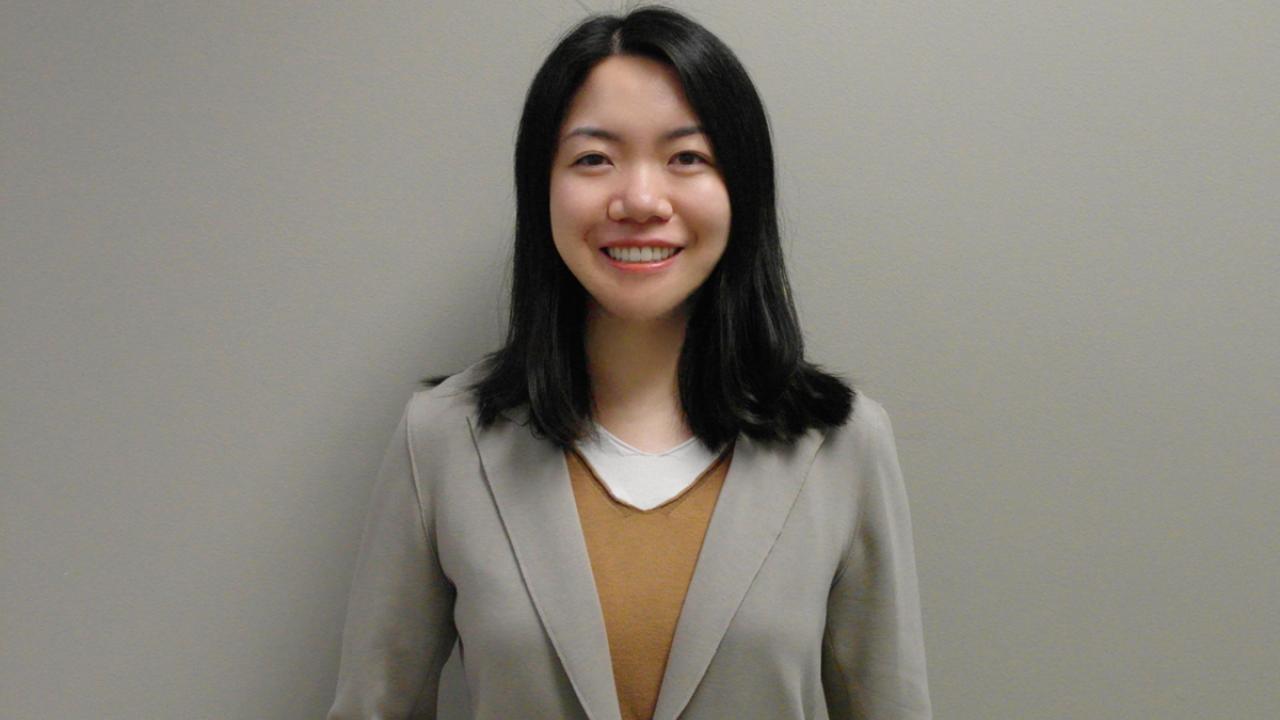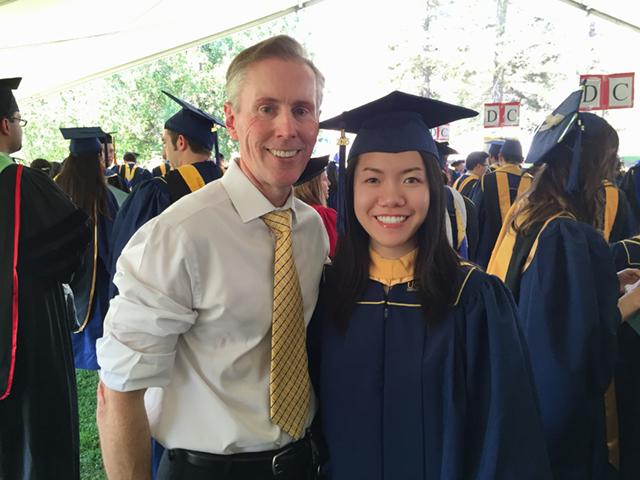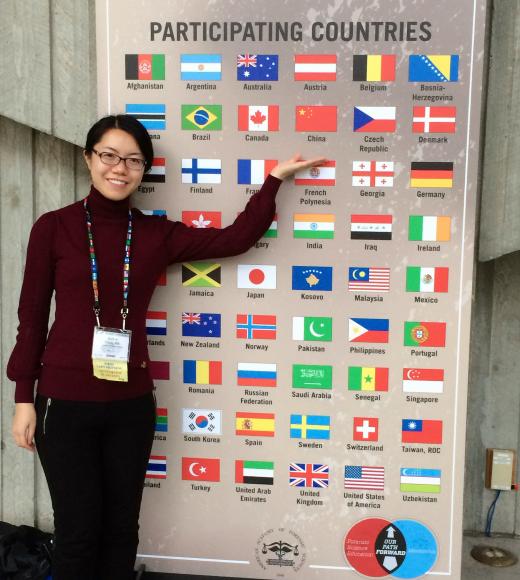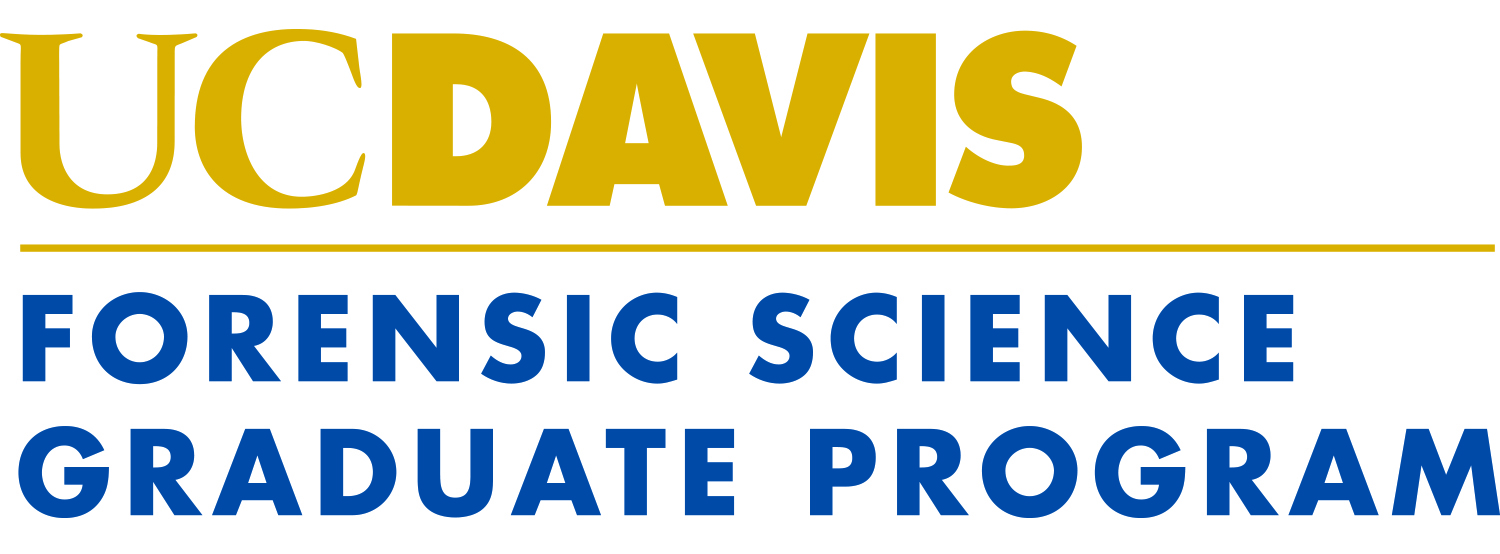
Sherlock Holmes Inspires a Forensic Criminalist
Born and raised in China, by the time Qiuhan Wang was a teenager, she had read the entire cannon of Sherlock Holmes, paid homage to his famous “home” on Baker Street in London and was determined to study forensic science in the U.S. She has since earned several degrees, including a master’s in forensic science from UC Davis. Today, she is a criminalist in the Forensic Alcohol Section at the California Department of Justice, where she is undergoing training to perform casework.
Looking back, Qiuhan says, “The Forensic Science Graduate program at UC Davis is absolutely the best of its kind. I’m really grateful for the knowledge and skills I learned and the amazing people I met.” Here, the 2015 graduate reflects on her time in the program.
How did your interests in forensics grow beyond your initial fascination with Sherlock Holmes?
In the Forensic Science Graduate Program at University of California, Davis, I worked at a research lab in the Department of Environmental Toxicology, where I developed a master thesis project with my research professor to quantify the amount of a specific carcinogen present in wines. After earning my M.S. in Forensic Science from UC Davis, I worked in a food authenticity testing lab in the Bay Area to identify food ingredients at a molecular level.
As my interest in food forensics grew, I decided to challenge myself further to pursue a doctoral degree. I was accepted into the Agricultural and Environmental Chemistry Doctoral Program at UC Davis and continued to work with the same professor and developed a research project to investigate the toxic volatile chemicals formed from heated cooking oils. All these research experiences strengthened my interest in food forensics, which is a non-traditional application of forensic science.
What motivated you to apply to the UC Davis Master’s in Forensic Science Program?
Since my undergraduate school was in the Midwest, I wanted to move to a warmer state with diverse culture, people and food options. The UC Davis Forensic Science Graduate Program was, and still is, the best of its kind in the nation. UC Davis is a top-tier public university and the program has an amazing director and highly qualified faculty. Davis is a safe and friendly college town within driving distance to Sacramento, Lake Tahoe and the San Francisco Bay Area.

What were your goals going into the program?
My B.S. in Forensic Science focused on forensic biology, but I wanted to be cross trained in criminalistics in my graduate program. I took several chemistry courses at UC Davis and worked in an analytical chemistry lab for my thesis project. My other goal was to improve my courtroom testimony skills, and the UC Davis Courtroom Testimony course was well designed with mock trials to teach me dos and don’ts in court.
How did the Criminalistics Track help prepare you for working in the field, and how have you been able to apply what you learned to your current work?
The Criminalistics Track had a great curriculum, covering topics like forensic science fundamentals, crime scene investigation, case reports, courtroom testimony, toxicant analysis and instrumental analysis. The curriculum was designed to address the core knowledge and skills required by forensic alcohol and controlled substances testing in crime labs.
I’m still in training at my current job, but I will apply my knowledge in case reports, courtroom testimony, crime scene investigation and instrumental analysis to my future work.
How did the master’s program prepare you for your doctorate studies?
The program facilitated my connection to the research lab and professor I worked with in the doctoral program. In addition, the master’s program set a solid foundation in analytical chemistry training for me. My logical reasoning and critical thinking skills improved during this program, which helped me investigate the challenging scientific problems I encountered in my doctorate studies. The Courtroom Testimony class prepared me well for the intense Ph.D. Oral Qualifying Examination.
What are some of your fondest memories from the program?

I remember using the electrostatic dust lifter to collect latent footwear impressions, examining paint and fibers under microscopes, running fire debris and drug analysis with GC-MS, excavating clandestine grave sites with my classmates, and testifying as an expert witness in mock trials. I also really liked the Homicide Crime Scene Investigation and Forensic Entomology courses. It was fun working with my team and instructors at simulated crime scenes in the field.
I’m grateful that I was able to attend several international, national and statewide forensic science conferences with my instructors and fellow students. The program covered my full expenses when I traveled to Southern California to present my master thesis poster at California Association of Criminalists seminar in 2015.
It was really beneficial and eye-opening to have working forensic science professionals teaching us certain courses with their real casework experience. For example, our program director at the time was a former FBI forensic scientist.
What was your most valuable takeaway from the program?
The program prepares you well for a crime lab career or graduate/professional school. Being a government forensic scientist isn’t the only career option; you can also work for the biotechnology companies, pharmaceutical companies, food companies, private forensic labs or pursue a doctoral/professional degree in your area of interest.
How do you feel your experience in the program helped you get to where you are today?
There is a big network of UC Davis Forensic Science Graduate Program alumni in the California Department of Justice crime labs. I think earning an M.S. from a well-recognized forensic science program is definitely a plus in my job search.
Considering a Career in Forensic Science?
Sign up for a free online information session to learn more about the program and get answers to your questions.
Would you recommend this program?
I highly recommend this program if you want to learn from the best minds and experiences in the forensic science world and enjoy a sunny, college-town life in California!
What advice do you have for others considering a career in forensic science?
To get a career in forensic science, you need to study one of the physical sciences or forensic science in college, do some crime lab internships and attend forensic science conferences to build professional connections. The minimum hiring requirement of a forensic scientist is a bachelor’s degree, but getting a master’s degree in forensic science will make you more competitive in the job market. It might be hard to land a forensic science position right after graduation, so you may need to work in a private or university lab first before applying.
